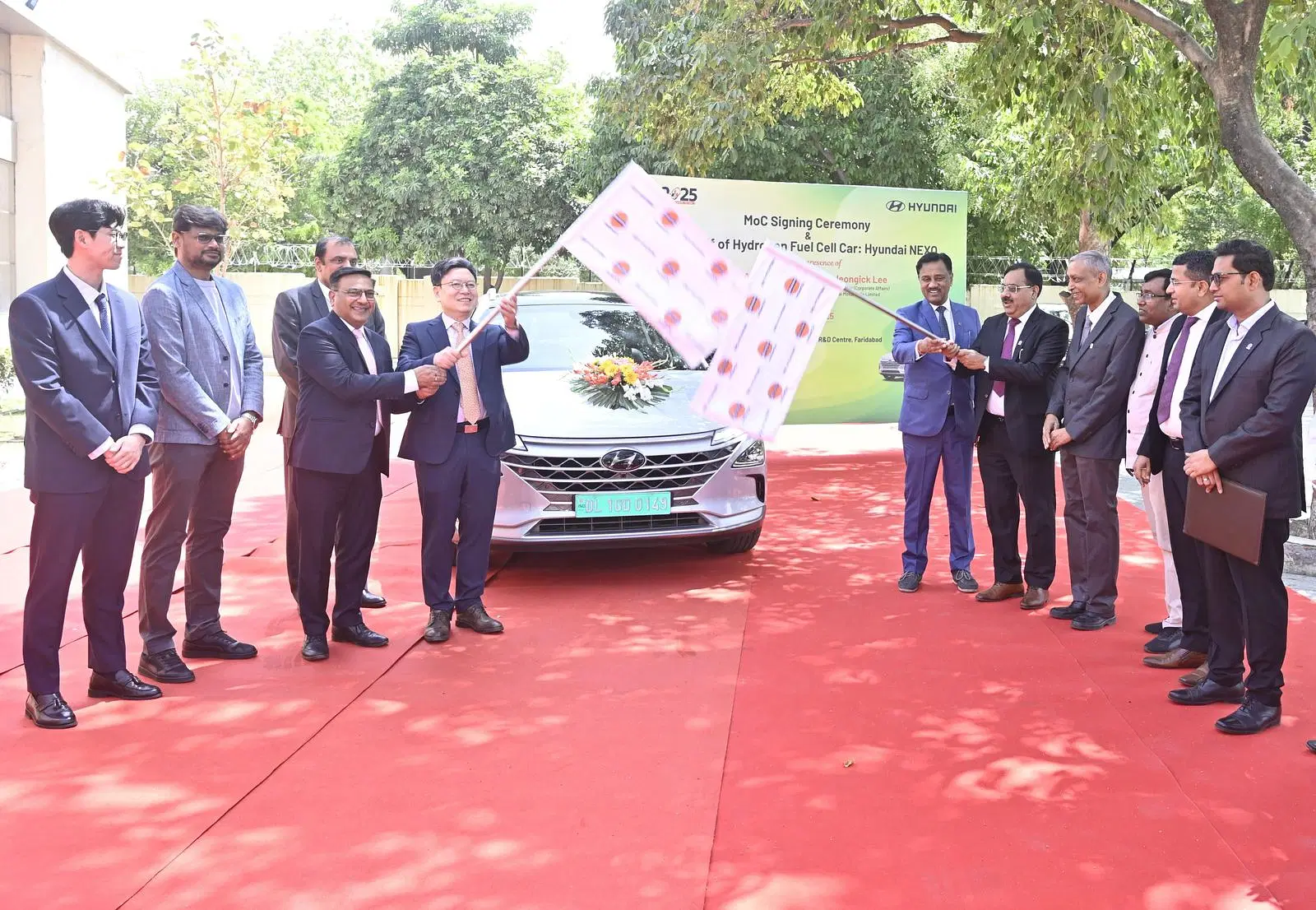India's Leap Towards Sustainable Transport: Hydrogen Vehicle Trials Underway
Key Ideas
- India embarks on on-road trials for hydrogen fuel cell electric vehicles (FCEVs) to decarbonize its transport sector.
- The partnership between a leading automobile manufacturer and India's public-sector energy enterprise aims to assess the commercial viability of hydrogen-powered mobility in Indian conditions.
- Trials will span two years, covering over 40,000 km to evaluate operational durability, efficiency, Total Cost of Ownership (TCO), and economic feasibility for large-scale adoption.
- The initiative aligns with India's goal to scale up the hydrogen economy, reduce fossil fuel imports, and transition to cleaner fuels, positioning the country as a leader in green innovation.
India has initiated on-road trials for hydrogen fuel cell electric vehicles (FCEVs) in a move towards decarbonizing the transport sector. A collaboration between a prominent automobile manufacturer and India's public-sector energy enterprise is conducting these trials to assess the viability of hydrogen-powered mobility in Indian conditions. The partnership involves a long-term pilot spanning two years and 40,000 km of road testing to analyze factors such as operational durability, efficiency, Total Cost of Ownership (TCO), and economic feasibility. The aim is to advance sustainable transport solutions and test the adaptability of hydrogen fuel cell technology across India's diverse geography.
The trials are part of India's broader national effort to promote the hydrogen economy and achieve net-zero carbon goals. By leveraging green hydrogen produced through renewable energy, the initiative not only showcases environmental benefits but also demonstrates the practical deployment of hydrogen mobility infrastructure. The project reflects a commitment to future-ready technology and decarbonized transport, aiming to make hydrogen a mainstream fuel alternative in India. Additionally, the trials focus on creating a supportive ecosystem for hydrogen fuel use, including refueling infrastructure, safety protocols, and economic modeling.
In parallel, the automotive manufacturer is supporting the establishment of a Hydrogen Innovation Centre to foster research and innovation in clean hydrogen technologies. This collaborative effort involving academia, industry, and public policy is expected to accelerate the commercial readiness of hydrogen technologies in India. The National Hydrogen Mission, launched by the Government of India, targets the production of five million tons of green hydrogen annually by 2030.
The article emphasizes the significance of hydrogen FCEVs for sectors requiring higher energy density and faster refueling options. With the partnership symbolizing India's ambition to lead the hydrogen revolution, the project could potentially reshape the country's transport landscape and serve as a model for other developing economies exploring green fuel pathways. The initiative underscores the country's commitment to sustainability, innovation, and reducing carbon emissions in the transportation sector.
Topics
India
Decarbonisation
Research Collaboration
Green Economy
Sustainable Transport
Transportation Sector
Energy Innovation
Latest News
